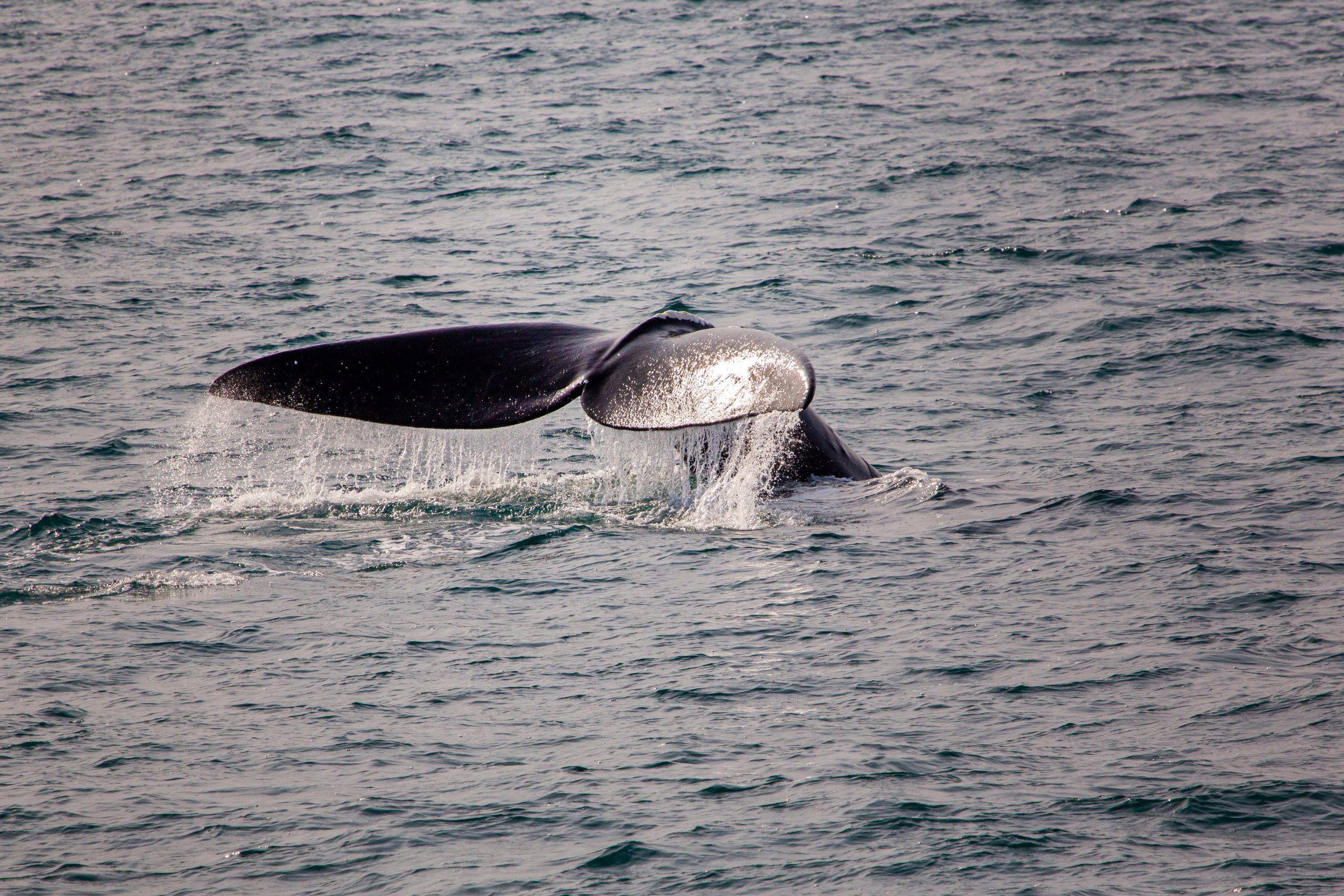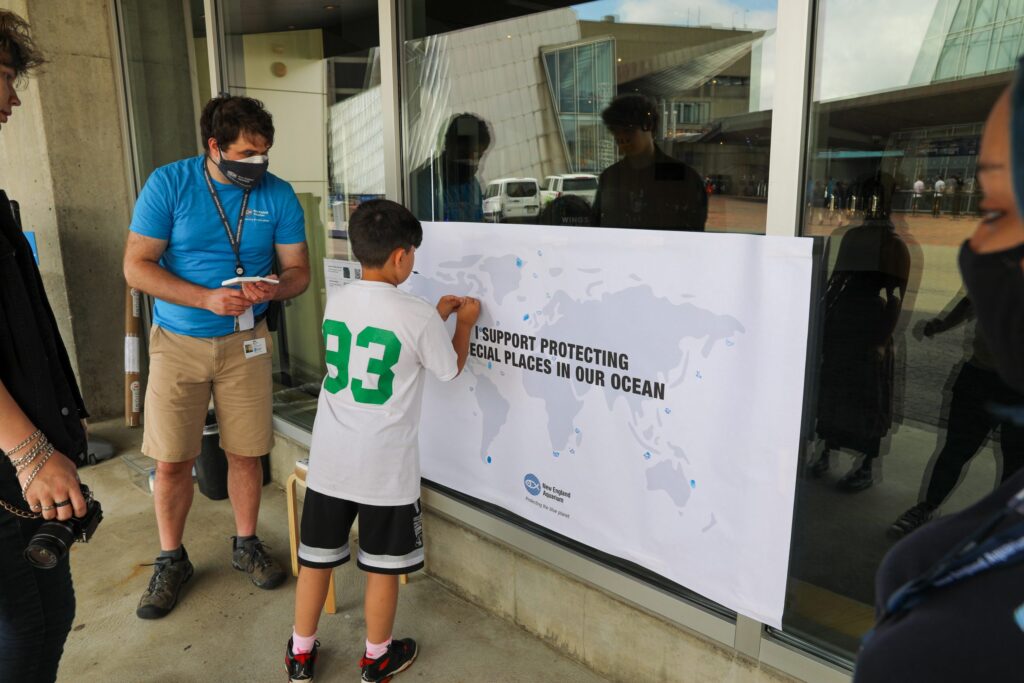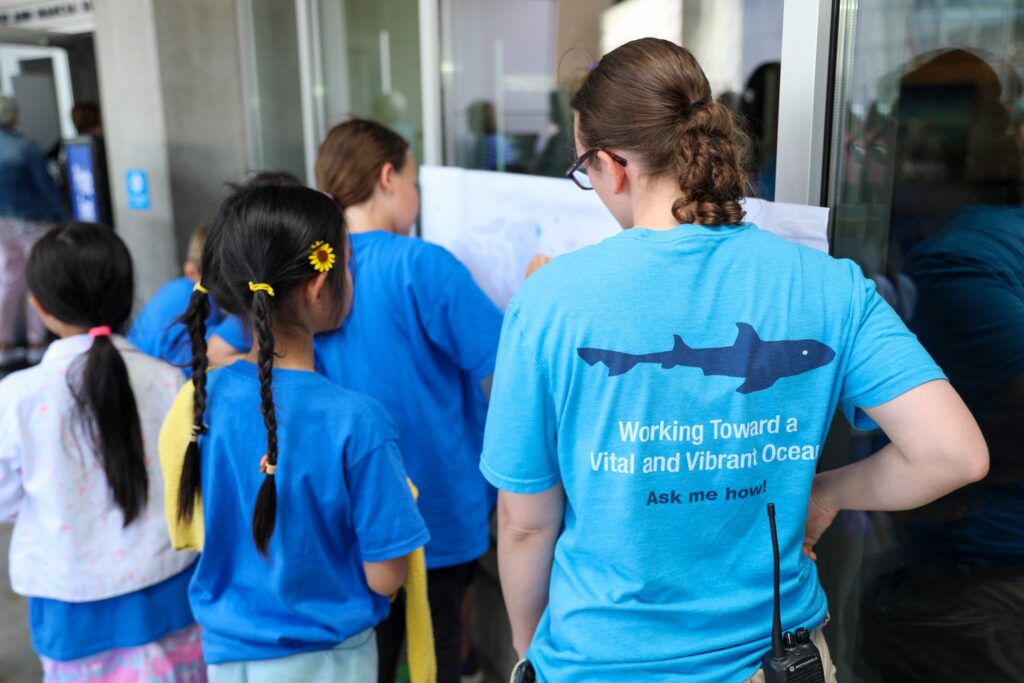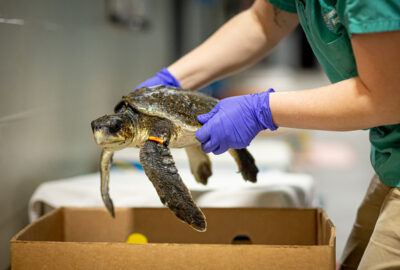8 Ways to be an Ocean Advocate in Your Community
By New England Aquarium on Wednesday, November 02, 2022


Being an ocean advocate might sound like a big job—but there are plenty of little things you can do in your own community that can help protect the ocean.
It only requires taking the first step, and any one of these actions can make an impact in protecting ocean animals and habitats.

1. Talk with your friends and family about ocean issues
Whether it’s a conversation around the dinner table or a post on social media, talking with friends and family is a great way to get more people engaged with ocean conservation. The goal isn’t to convince someone to become an ocean advocate—at least not right away. Try asking questions, and spend time listening to the other person about their thoughts and concerns.
Do you remember what made you first interested in ocean conservation? You can share that story with them—it’s a great place to start!
For more tips, watch this video about talking to others about climate change.
2. Find out what’s happening in your community
Even if you don’t live in a coastal area, there’s a chance your city or town is already taking action that helps protect the ocean. Passing plastic bag bans in stores, using marine-safe road deicers in the winter, taking steps to prevent agricultural runoff, promoting alternative transportation, and switching to clean energy sources are just some of the eco-friendly actions municipalities can take—and that you can support where you live.
3. Support environmentally responsible companies
What you buy and where you buy it can make a difference. Next time you’re making a big purchase, try to see if a company shares your values before you spend money with them. Keep an eye out for B Corp Certification—it’s a marker that a company has been vetted and meets a high standard on social and environmental issues. Businesses that practice corporate social responsibility are often more eco-friendly and promote equity, environmental, and social justice issues.
Greenwashing—when a company positions itself as environmentally friendly but isn’t making any sustainable action—can make it tricky to discern if a company is actually responsible. Relying on a recommendation from an outside resource, such as a newspaper or environmental organization, can help paint a clearer picture.
4. Vote
Make your voice heard by voting in local, state, and national elections, and help elect candidates and enact policies that make protecting our environment a priority. Not sure if you’re registered to vote or need more information on voting in your area? You can check your voter registration status online and learn more about ways to be a voice for the ocean at the ballot box!

5. Learn about and advocate for ocean justice
Understanding the big picture is important in your journey to being an ocean protector. You might be familiar with the ocean issues that are important to your community, but what about the issues affecting others nationally and globally? By learning about the disproportionate impact issues like rising seas, climate change, and marine debris have on marginalized communities—particularly for Black, Indigenous, and other people of color, and/or low-income communities—ocean advocates can advocate for equitable solutions to conservation issues.
Here in Massachusetts, you can explore how communities across the state are affected differently by climate change with this interactive map from the Department of Public Health.
6. Get in touch with a public official
Our public officials are in office to represent the collective interests of their residents and communities. By reaching out to your public officials, from sending an email to requesting a meeting, you can help put a face to an issue and build relationships with decision-makers that can help transform them into ocean champions!
Here are a few tips for crafting an effective letter or email to a public official: First, be respectful and use their official title when you address your correspondence. Second, tell them who you are and what you’re writing about—in this case, that you’re a constituent interested in ocean conservation and want to see them support policies that protect marine animals and habitats. Third, make it personal. Tell them why this issue matters to you, and share any relevant anecdotes that underscore your reason for writing.
If you’re unsure who your current representatives are or how to contact them, you can find that information here.
7. Write a letter to the editor of a newspaper
Letters to the editor are another important and effective way to communicate to policymakers and your communities about timely ocean conservation issues. They are also a great way to build support for ocean issues that matter to you!
Not every newspaper will accept a general letter to the editor—but a smaller, local paper might. If not, responding to a specific news story will give your letter a higher chance of getting published. Keeping your letter brief and focused on one topic is also a good idea. A printed paper will have limits on how long a published letter can be.
8. Take action for a cause that’s important to you
Consider the individuals, organizations and networks that you know are already doing good work. Are there ways you can support them? This could be a donation of your time, talents, or money. Reach out if you’re interested in pitching in however you can—you never know until you ask!
Stay Updated
Want to learn more about the ways you can help us to protect our blue planet? Please complete the form below to receive updates from the New England Aquarium regarding advocacy opportunities.




